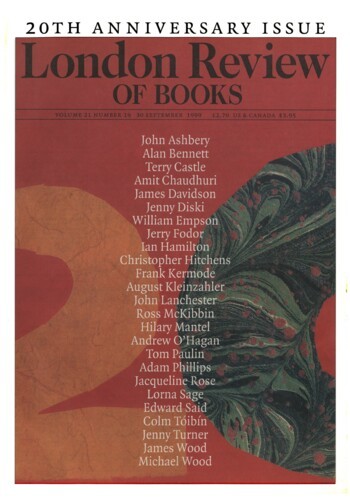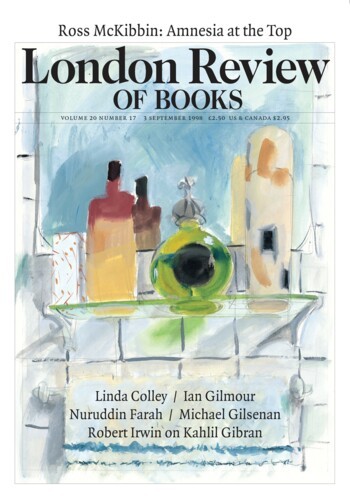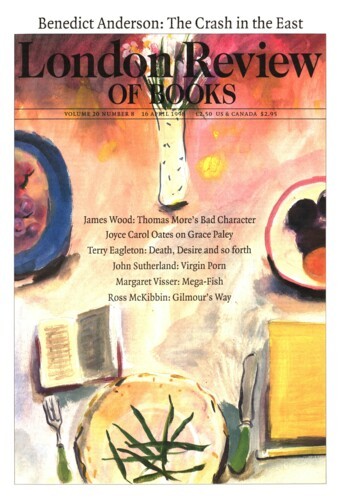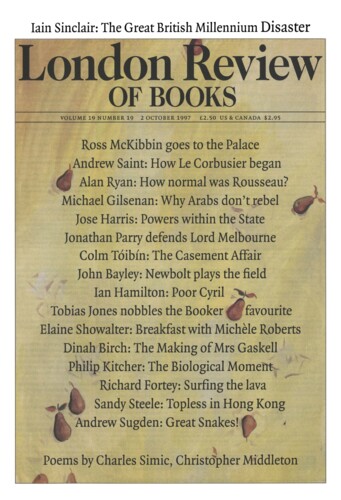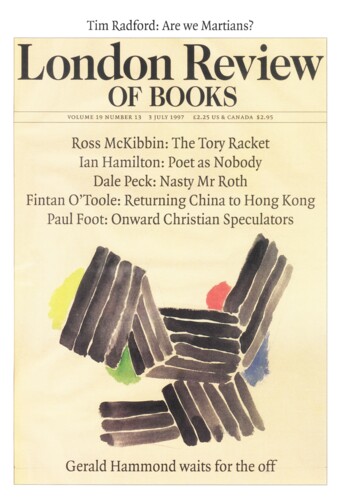Mondeo Man in the Driving Seat: Blair’s Government at Mid-Term (1999)
Ross McKibbin, 30 September 1999
Nowadays, when a government reaches halfway, a ‘stocktaking’ is expected. And there has been some stocktaking of the present Government, but of a rather muted sort; ‘muted’ because it is difficult to stocktake a government which looks electorally impregnable but whose future course is uncertain to everyone except the Prime Minister. Electorally, there seem to be no dangers. If the Eddisbury by-election result is the best the Conservatives can do at midterm, Mr Blair has little to fear. Despite this, however, and despite the fact that he has an overall aim – modernisation – from which he will not deviate, the Prime Minister is said to be ‘frustrated’, as the observer who looks for a coherent programme is likely to be, since it is not at all clear what Mr Blair means by ‘modernisation’. Nor is it possible to infer a complete programme from the Government’s actions, many of which are incomplete and some of which are anything but modern.’‘
